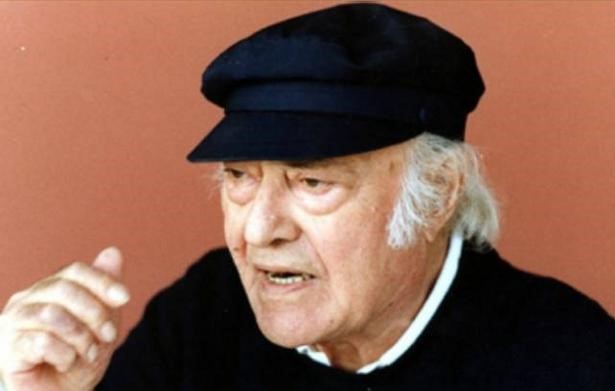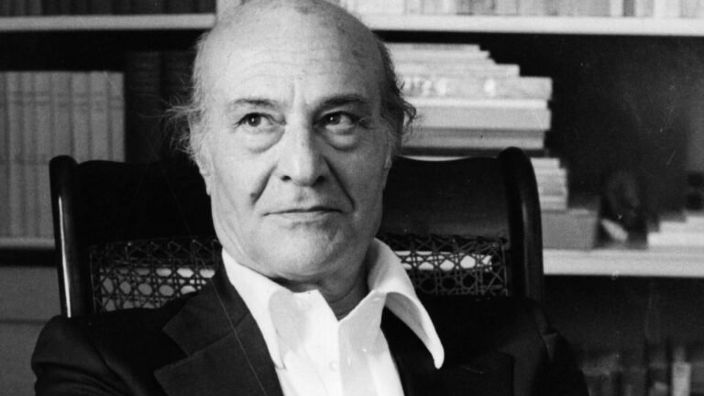By Billy Patramanis.
Odysseus Alepoudellis was born on 2 November, 1911, in Heraklion, Crete. He was the son of a very wealthy family but changed his surname to Elytis when he began writing as a teenager, in order to disassociate his poetry from his family.
Elytis took an interest in poetry at around 17 years old. It was during this time that Elytis learnt the concept of surrealism, which was a new theory being developed in France at the time. He decided to base his poetry off the teachings.

Elytis studied law at the University of Athens after graduating from school, but after being influenced by the poet, Paul Eluard, Elytis decided to turn to literature and poetry.
Elytis published his first volume of poetry in 1936 titled “Prosanatolizmi.” The poetry was an uplifting, positive piece of work, earning Elytis the name of the ‘sun-drinking poet.’
In 1937, Elytis joined the National Military School in Corfu, Greece, serving his military requirement. During World War II, at the time of Nazi occupation in Greece in 1941, Elytis served on the frontline in Albania, fighting against the Italians.
While he stopped publishing poetry during this time, Elytis wrote a gruelling and powerful poem, depicting his time on the battlefield. His poem, published in 1945, was titled ‘A Heroic and Elegiac Song of the Lost Second Lieutenant of the Albanian Campaign.’

While Elytis was often regarded as a happy poet who praised the purity and beauty of life, this poem was the complete opposite of his usual work, depicting the true brutality of war on the frontline.
After World War II, Elytis took a break of almost 10 years from poetry. He would instead reside in Paris between 1948-1952. Here he studied philology in the Sorbonne. During this time he would also travel to Switzerland, Italy, Spain and England.
He returned to poetry soon after, publishing ‘To axion esti.’ This poem, after a long absence studying and travelling, is regarded as his true masterpiece. In the poem, Elytis questions himself and who he is, as well as Greece and its people, in a spiritual way.

The poem was highly successful, and he won many awards because of it. Elytis’ accolades include The First State Poetry Prize in 1960, The Order of the Phoenix Brigade in 1965, as well as being awarded Doctor Honoris Causa of the Philosophical School of the Thessaloniki University in 1975, and becoming an Honorary Citizen of the Town of Mytilene.
His greatest achievement however, came in 1979 when he was awarded the Nobel Prize in Literature.
Elytis is regarded as one of the greatest poets of the 20th century. His collection of work was published in English in 1997, titled ‘The Collected Poems of Odysseus Elytis.’
Odysseus Elytis died on the 18th of March, 1996.


